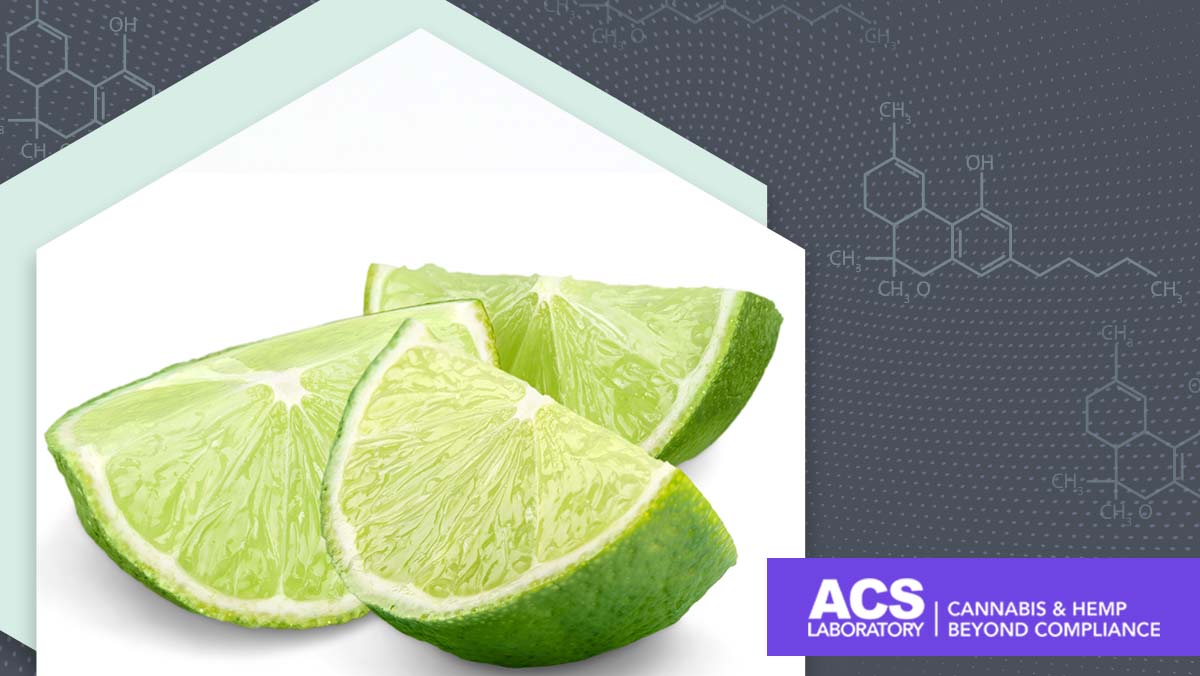Terpene Tuesdays: Everything You Need to Know About Farnesene Flavor, Fragrance, and Benefits
Farnesene is an aromatic terpene found in nutmeg, green apple skins, ginger, hops, and pepper. It can be earthy, spicy, and as comforting as the scent of home-brewed chamomile tea. Farnesene also occurs in cannabis plants– responsible for their flavor, fragrance, and therapeutic profile.
Here we review why terpenes matter, the benefits of farnesene, and how to incorporate more of this terpene into your cannabis regime.
First, What are Terpenes?
Terpenes are naturally occurring botanical chemicals in most plants, fruits, and vegetables. In cannabis, terpenes contribute to each strain's distinctive flavor, fragrance, properties, and effects. Terpenes also affect each strain’s psychoactive profile and therapeutic properties by synergizing with cannabinoids like THC and CBD in the body. Terpenes typically concentrate in the trichomes of female buds,
What Is Farnesene?
Farnesene, also known as trans-farnesene, is a member of the terpene family known as sesquiterpenes and is thought to have sedative and regulating effects on the human body and mood. There are six different types of Farnesene, including α-farnesene (alpha-farnesene) and β-farnesene (beta-farnesene). These are isomers of one another with similar properties. The only difference is where their double carbon bond is located on their atom chain (think Delta-8 vs. Delta-9 THC).
Types of Farnesene
There are two main Farsene isomers.
- a-Farnesene terpenes
a-Farnesene terpenes are frequently linked to plants with a woody, earthy, or spicy scent. These include:
- Pepper
- Mace
- Nutmeg
- Ginger
- Ginseng
- b-Farnesene terpenes
b-Farnesene terpenes are more frequently linked to plants that have citrus and tropical fruit scents. These include: and flowers such as chamomile, chrysanthemum, grapefruit, and hops.
- Sandalwood
- Green apple skins
- Cedarwood
- Chrysanthemum
- Grapefruit
- Oranges
- Hops
- Chamomile
- Ginger
- Turmeric
- Patchouli
What are the Effects of Farnesene?
Studies show farnesene can multi-task with various plant and human-based benefits. For example,
- Farnesene has sedative qualities when contained in chamomile, which can help lure people into a sound night's sleep. As a result, some people may supplement current sleep disorder treatments with this soothing terpene for added benefits.
- Inhaling farnesene is proven to have calming effects on the mind. It can also function as a muscle relaxant. Additionally, farnesene can boost subjective feelings of mental tranquility.
- This aromatic terpene has an intriguing feature that allows it to function as an insect-repelling pheromone. In fact, farnesene has been used as an insect repellent in several research studies.
Health Benefits of Farnesene
Farnesene’s sweet, soothing and insect-repelling properties also extend to therapeutic uses.
Anti-inflammatory properties
One of farnesene's many health advantages is its anti-inflammatory properties. Studies indicate that when applied topically, farnesene’s anti-inflammatory effects are on par with or superior to standard drugs in that category.
Gut health
Farnesene may play a significant role in combatting dangerous microorganisms and enhancing gut health in general. Research shows that farnesene can dissolve bacterial cell walls of food-borne pathogens.
Farnesene can also help relieve gas, bowel spasms, and cramps. Additionally, it helps to lessen intestinal irritation, which can be very unpleasant.
Anxiety relief
Farnesene can have strong sedative effects, which might contribute to its anxiolytic effects. One 2016 study showed that Anthriscus nemorosa, a type of essential oil containing farnesene, could significantly lower depression and anxiety while enhancing memory performance.
Dental health
According to a 2013 study, farnesene treatment prevents oral bacteria from forming. Farnesene may therefore be a useful substance in avoiding gum disease. Similar research shows that farnesene treatments may decrease some patients’ need for dental work.
Neuroprotection
Numerous cells, particularly neurons, can suffer severe damage from oxidative stress caused by an imbalance of free radicals and antioxidants. Research shows that Farnesene shows promise in lowering oxidative stress. It serves as an antioxidant and can neutralize free radicals to prevent the deterioration of neurons that occurs in many neurodegenerative illnesses. This suppression of cell death can also reduce the severity of such damage.
Potential Risks and Side Effects
Ingesting food containing farnesene or the trace levels found in cannabis does not appear to pose any health risks. Farnesene can be lethal if it is pure, consumed in high amounts, and enters the airways.
Which Cannabis Strains Are High in Farnesene?
Farnesene isn't frequently found in cannabis. However, it is occasionally found in small concentrations in strains with greater levels of myrcene, b-caryophyllene, and linalool.
Some strains include:
- Cherry Punch
- White Rhino
- Gainesville Green
- Dutch Treat Haze
- Comatose OG
- Zookies
Common Uses of Farnesene
- Drinks - This terpene is found naturally in drinks, such as chamomile tea, for a sedative or relaxing effect.
- Fragrances - Farnesene can be found in perfumes and candles, providing a relaxing scent.
- Biofuel-Farnesene is a branching, long-chain hydrocarbon compound. Due to this attribute, researchers say it can be used as an ingredient in biofuel manufacturing.
- Hemp oils and cannabis concentrates - Farnesene can be found in strains with greater terpenes like Myrcene, Linalool, and b-Caryophyllene.
Bottom Line
Preliminary research indicates farnesene offers vast benefits worthy of exploring in cannabis. Consumers who want to find farnesene strains should look for the product’s COA (certificate of analysis) showing its laboratory test results. All cannabis products should be accompanied by a COA from an accredited facility and include a terpene profile analysis. Understanding a strain’s terpene levels allows consumers to match products with preferences.


.jpeg)






.png)
.png)
.png)
.png)
.png)